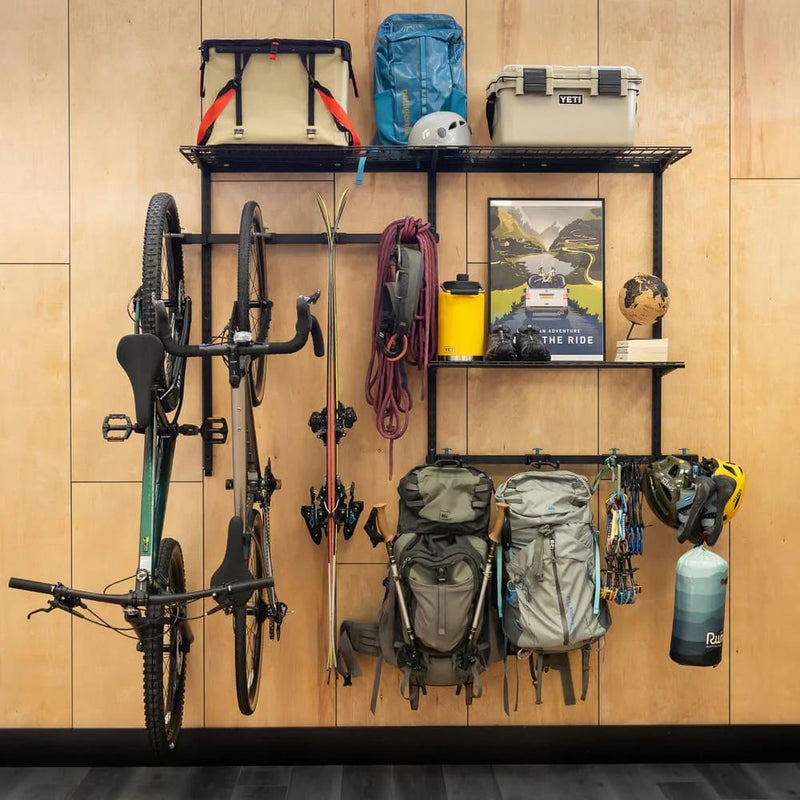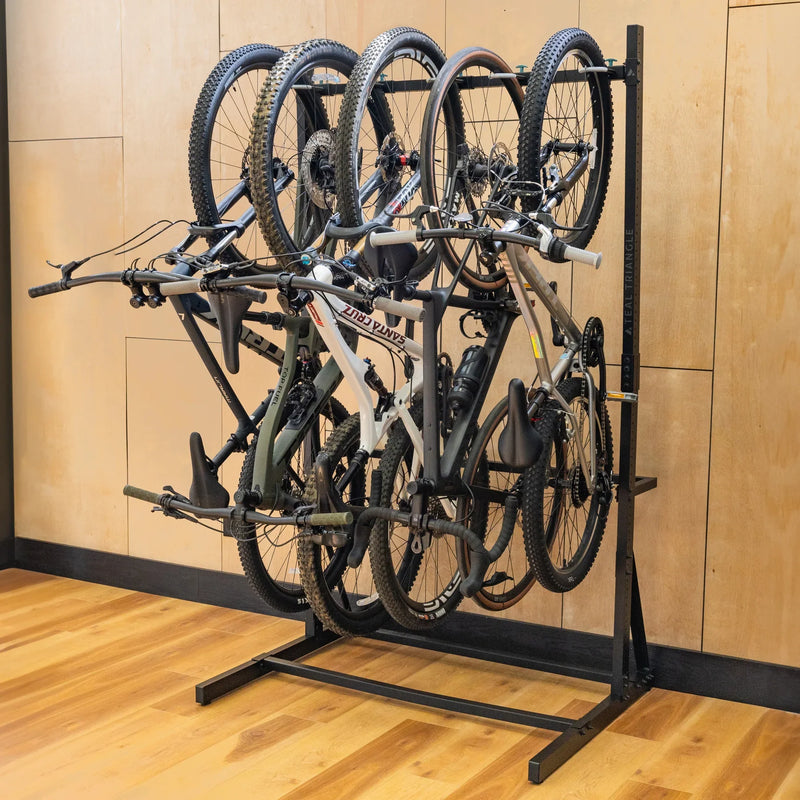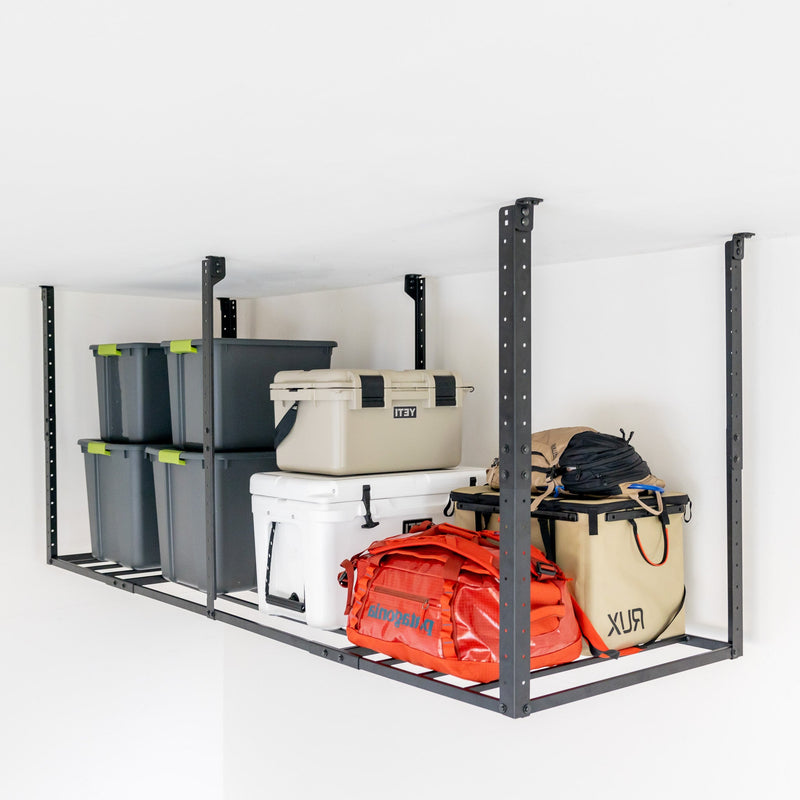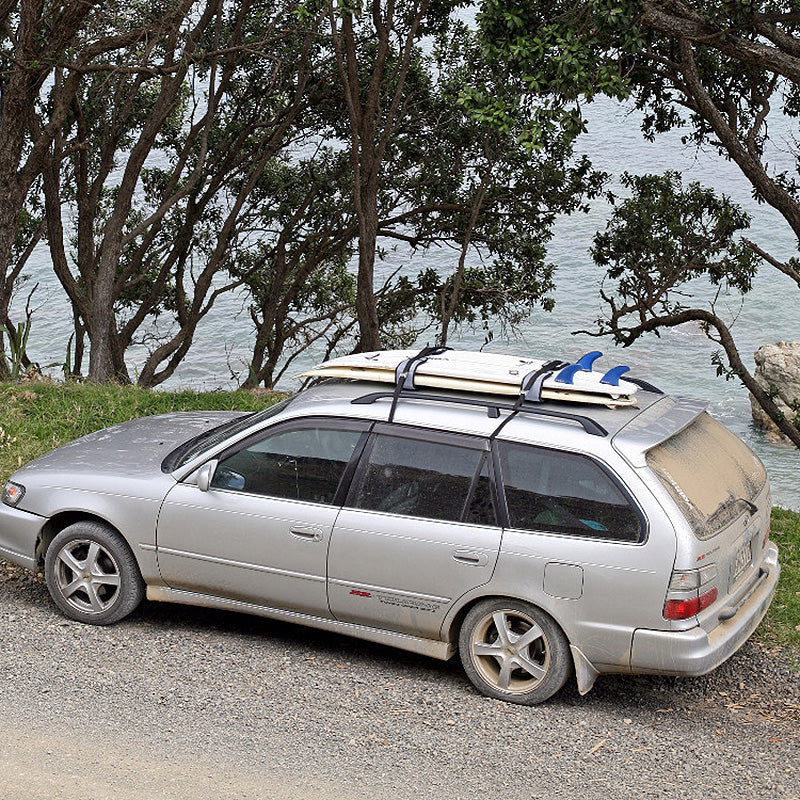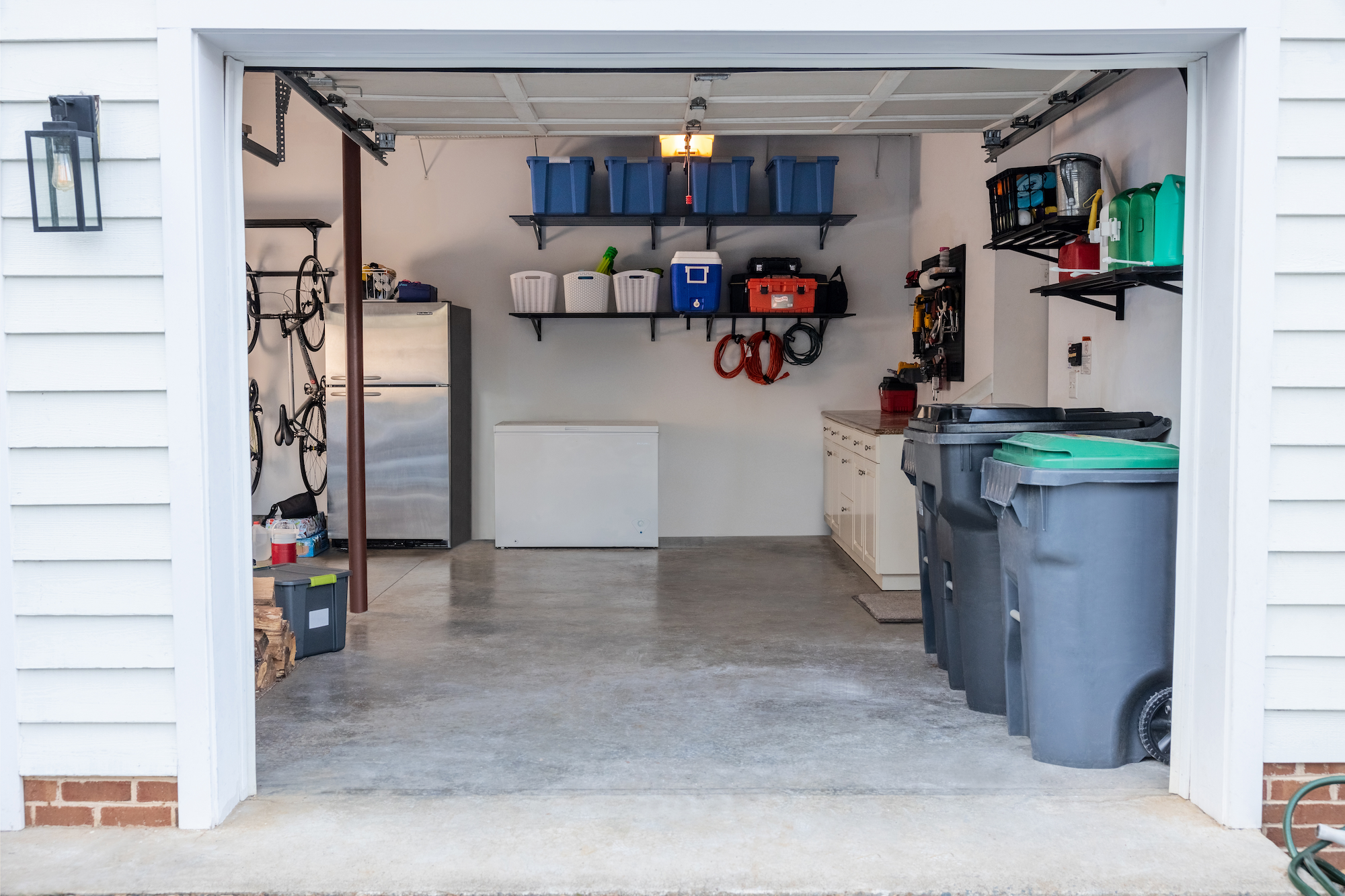What are wall studs?
Wall studs are thick wood beams that support the frame and walls of a house or building. Most standard wall studs are located 16" apart along the walls of the structure, though some are 24" apart.
Why wall studs are important for mounting board/boat/gear racks:
For the majority of the wall racks we sell, you need mount the rack directly into the wood wall stud for it to safely perform and hold the weight it is rated to hold.
Mounting your rack to wall studs:
Many of our wall racks consist of two arms or cradles for your boat or board. For those type of racks, setup is flexible to fit your gear and your studs.
For both wall and ceiling mounts, the distance between arms or brackets primarily depends on the length of tools or gear you are storing. To start, you want to have even distribution of weight on the rack. In most situations, you can divide the length of your board, boat, or gear by half. The number you get is how far apart to space the arms.
For example, if you have a 10' board, divide that by half to get 5'. You can place the arms 5' apart. In this scenario, the board would have 5' of its length between arms of the system and 2.5' extending over both sides. This is a good distribution of length and weight. It doesn't need to be exact, but this is a good range to work with. If you will be storing boards or boats of varying lengths, use the shortest item to determine how far apart to set the arms or brackets.
Once you've determined the best spacing, you just need to locate two wall studs that are spaced roughly that far apart. Examples of these type of racks:


Some of our wall racks, such as the G-System, have a single, long mounting bar and adjustable wall mount brackets. This gives you the flexibility to mount the rack where needed to line up with the wall studs, as you can adjust where you place the mounting brackets along the bar and the wall. Example of this type and the adjustable wall mounting brackets:


Some other wall racks we offer include a single long mounting bar with pre-drilled mounting holes. The holes will be placed 16" to 32" apart on the rack, so they will line up with standard 16" studs, but not 24" studs. We do not recommend this style for 24" stud placing. You can find the measurement of where the holes are on those type of wall racks included in the listing under the specifications and as a photo. Example:

How do I locate my wall studs?
The best way to locate them is using a stud finder, which is a tool that signals when it is over a wall stud. This ensures your rack is mounted properly to support your board, watercraft, tools, or other gear safely.
What is the difference between wall studs and ceiling beams/rafters/joists?
Ceiling rafters, joists, or beams are also thick wood studs that support the ceiling, similar to wood wall studs. Sometimes they are exposed, and you can see the beams running overhead. Otherwise, they need to be located with a stud finder for secure installation of the product.
My Rafters Run in the Opposite Direction – How Do I Set Up Ceiling Hoist?
Our ceiling hoists, such as the Hi-Lift Pro, are designed to be installed on one rafter, beam, or ceiling joist, with the brackets set up to about 5 to 6 feet apart on that rafter.

If your ceiling joists run in the opposite direction of how you need to store your gear, you need to mount a 2x4 or 4x4 board to your rafters, then secure the Hi-Lift or other hoist to that board in the desired direction.

Once you mount the board, follow the instructions for mounting the hoist to the board instead of directly to the rafters.


